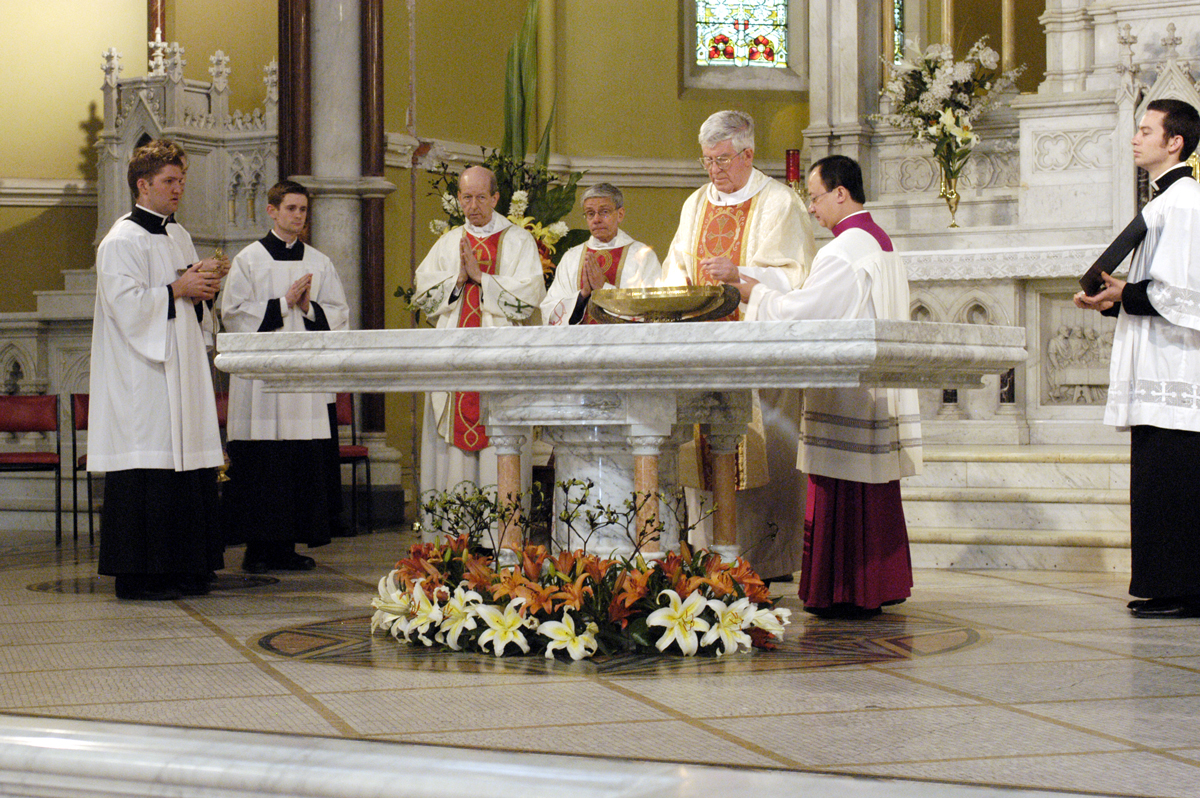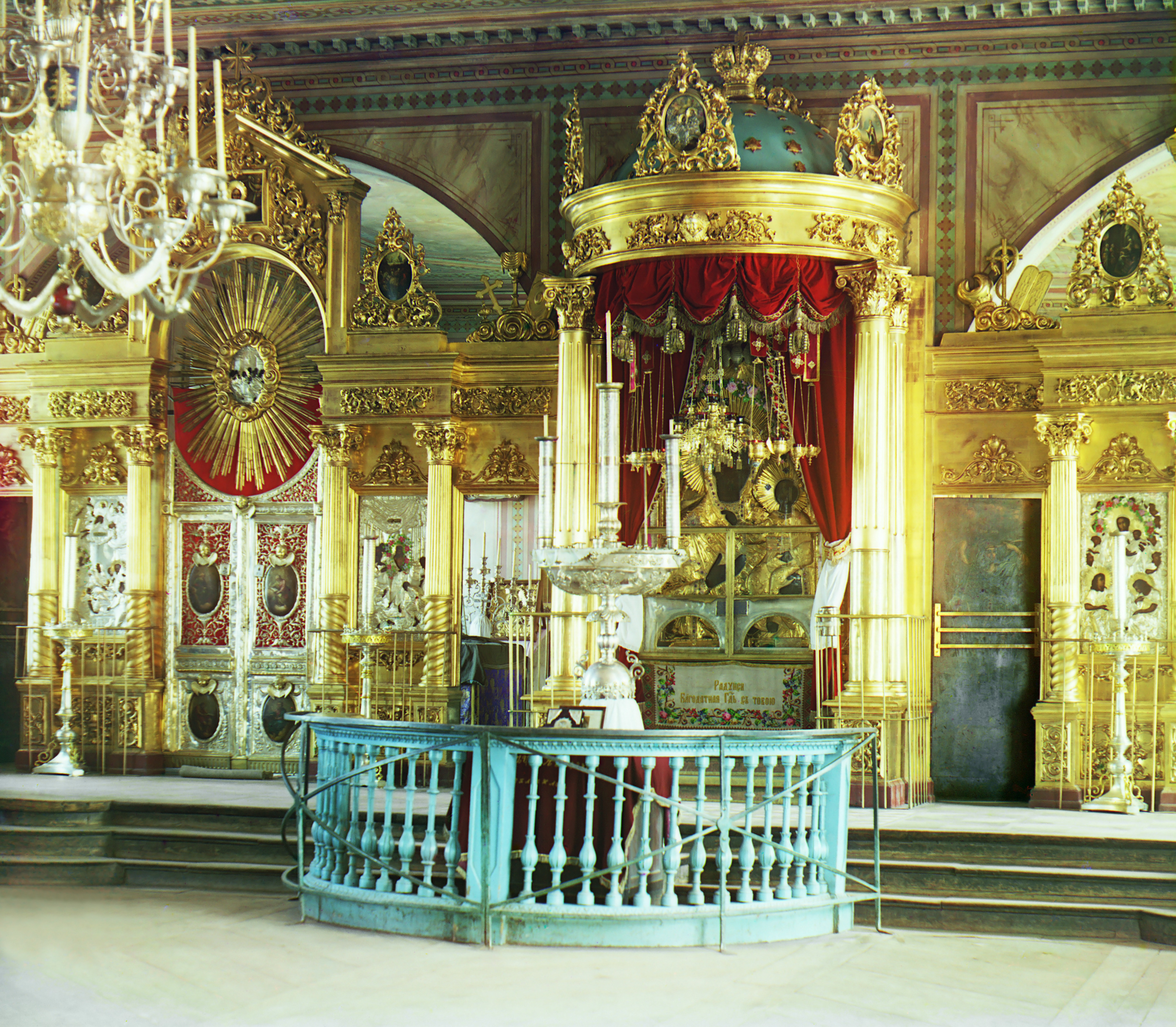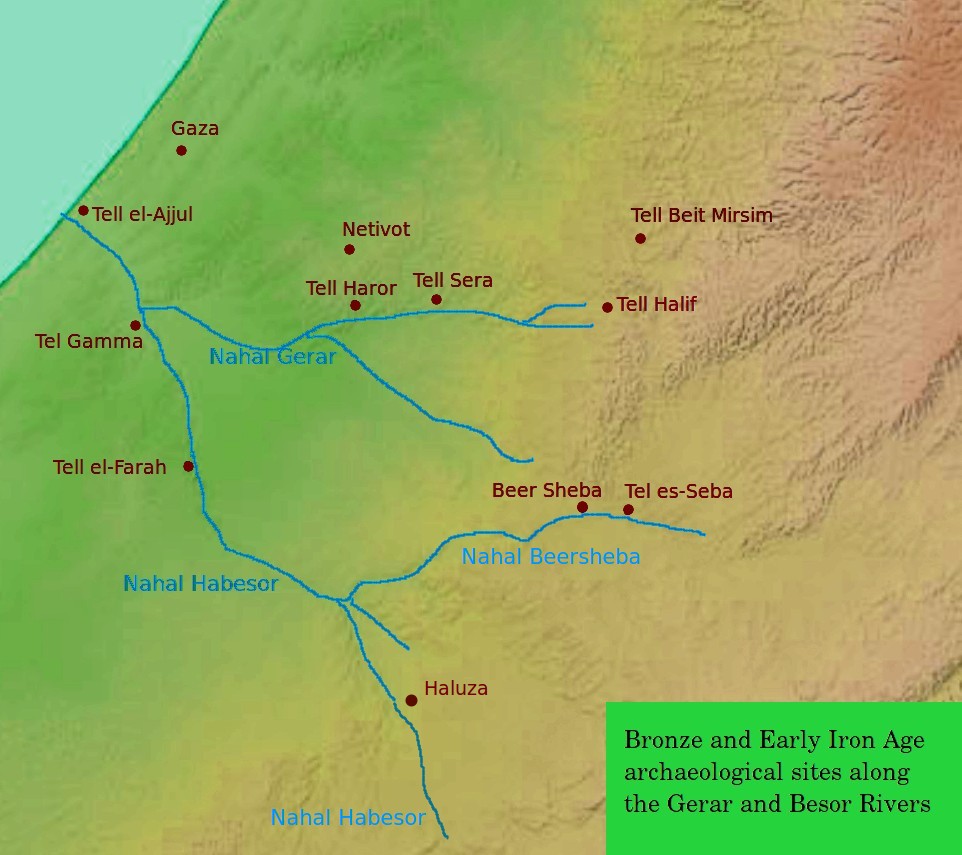|
Altars
An altar is a table or platform for the presentation of religious offerings, for sacrifices, or for other ritualistic purposes. Altars are found at shrines, temples, churches, and other places of worship. They are used particularly in paganism, Christianity, Buddhism, Hinduism, Judaism, modern paganism, and in certain Islamic communities around Caucasia and Asia Minor. Many historical-medieval faiths also made use of them, including the Roman, Greek, and Norse religions. Etymology The modern English word ''altar'' was derived from Middle English ''altar'', from Old English ''alter'', taken from Latin ''altare'' ("altar"), probably related to '' adolere'' ("burn"); thus "burning place", influenced by ''altus'' ("high"). It displaced the native Old English word '' wēofod''. Altars in antiquity File:Tel Be'er Sheva Altar 2007041.JPG, Horned altar at Tel Be'er Sheva, Israel. File:3217 - Athens - Sto… of Attalus Museum - Kylix - Photo by Giovanni Dall'Orto, Nov 9 2009.jpg, An ... [...More Info...] [...Related Items...] OR: [Wikipedia] [Google] [Baidu] |
Altar
An altar is a Table (furniture), table or platform for the presentation of religion, religious offerings, for sacrifices, or for other ritualistic purposes. Altars are found at shrines, temples, Church (building), churches, and other places of worship. They are used particularly in paganism, Christianity, Buddhism, Hinduism, Judaism, modern paganism, and in certain Islam, Islamic communities around Caucasus, Caucasia and Anatolia, Asia Minor. Many historical-medieval faiths also made use of them, including the Religion in ancient Rome, Roman, Religion in ancient Greece, Greek, and Norse paganism, Norse religions. Etymology The modern English language, English word ''wikt:altar#English, altar'' was derived from Middle English ''wikt:alter#Latin, altar'', from Old English ''wikt:alter, alter'', taken from Latin ''wikt:altare#Latin, altare'' ("altar"), probably related to ''wikt:adolere#Etymology 2, adolere'' ("burn"); thus "burning place", influenced by ''wikt:altus#Latin, altus'' ( ... [...More Info...] [...Related Items...] OR: [Wikipedia] [Google] [Baidu] |
Shrine
A shrine ( la, scrinium "case or chest for books or papers"; Old French: ''escrin'' "box or case") is a sacred or holy space dedicated to a specific deity, ancestor, hero, martyr, saint, daemon, or similar figure of respect, wherein they are venerated or worshipped. Shrines often contain idols, relics, or other such objects associated with the figure being venerated. A shrine at which votive offerings are made is called an altar. Shrines are found in many of the world's religions, including Christianity, Islam, Hinduism, Buddhism, Chinese folk religion, Shinto, indigenous Philippine folk religions, and Asatru as well as in secular and non-religious settings such as a war memorial. Shrines can be found in various settings, such as churches, temples, cemeteries, museums, or in the home. However, portable shrines are also found in some cultures. Types of shrines Temple shrines Many shrines are located within buildings and in the temples designed specifically for wo ... [...More Info...] [...Related Items...] OR: [Wikipedia] [Google] [Baidu] |
Religion In Ancient Greece
Religious practices in ancient Greece encompassed a collection of beliefs, rituals, and mythology, in the form of both popular public religion and cult practices. The application of the modern concept of "religion" to ancient cultures has been questioned as anachronistic. The ancient Greeks did not have a word for 'religion' in the modern sense. Likewise, no Greek writer known to us classifies either the gods or the cult practices into separate 'religions'. Instead, for example, Herodotus speaks of the Hellenes as having "common shrines of the gods and sacrifices, and the same kinds of customs." Most ancient Greeks recognized the twelve major Olympian gods and goddesses— Zeus, Hera, Poseidon, Demeter, Athena, Ares, Aphrodite, Apollo, Artemis, Hephaestus, Hermes, and either Hestia or Dionysus—although philosophies such as Stoicism and some forms of Platonism used language that seems to assume a single transcendent deity. The worship of these deities, and several ... [...More Info...] [...Related Items...] OR: [Wikipedia] [Google] [Baidu] |
Hinduism
Hinduism () is an Indian religion or ''dharma'', a religious and universal order or way of life by which followers abide. As a religion, it is the world's third-largest, with over 1.2–1.35 billion followers, or 15–16% of the global population, known as Hindus. The word ''Hindu'' is an exonym, and while Hinduism has been called the oldest religion in the world, many practitioners refer to their religion as '' Sanātana Dharma'' ( sa, सनातन धर्म, lit='the Eternal Dharma'), a modern usage, which refers to the idea that its origins lie beyond human history, as revealed in the Hindu texts. Another endonym is ''Vaidika dharma'', the dharma related to the Vedas. Hinduism is a diverse system of thought marked by a range of philosophies and shared concepts, rituals, cosmological systems, pilgrimage sites, and shared textual sources that discuss theology, metaphysics, mythology, Vedic yajna, yoga, agamic rituals, and temple building, among other topi ... [...More Info...] [...Related Items...] OR: [Wikipedia] [Google] [Baidu] |
Religion In Ancient Rome
Religion in ancient Rome consisted of varying imperial and provincial religious practices, which were followed both by the people of Rome as well as those who were brought under its rule. The Romans thought of themselves as highly religious, and attributed their success as a world power to their collective piety ''( pietas)'' in maintaining good relations with the gods. Their polytheistic religion is known for having honored many deities. The presence of Greeks on the Italian peninsula from the beginning of the historical period influenced Roman culture, introducing some religious practices that became fundamental, such as the '' cultus'' of Apollo. The Romans looked for common ground between their major gods and those of the Greeks ('' interpretatio graeca''), adapting Greek myths and iconography for Latin literature and Roman art, as the Etruscans had. Etruscan religion was also a major influence, particularly on the practice of augury, used by the state to seek th ... [...More Info...] [...Related Items...] OR: [Wikipedia] [Google] [Baidu] |
Tel Be'er Sheva
Tel Sheva ( he, תל שבע, translit=) or Tel Be'er Sheva (), also known as Tell es-Seba (), is an archaeological site in the Southern District of Israel, believed to be the site of the ancient biblical town of Beer-sheba. The site lies east of modern Beersheba and west of the Bedouin town of Tel Sheva. Tel Sheva has been preserved and made accessible to visitors in the Tel Be'er Sheva National Park ( he, גן לאומי תל באר שבע). Etymology The Hebrew name of Beersheba is derived from ''be'er'', meaning a well, and ''sheva'', meaning "Oath". History Beer-sheba is mentioned 33 times in the Hebrew Bible. It is often used when describing a border, such as “from Dan to Beer-sheba” (). It is also a significant center in the patriarchal narratives: Abraham dwelt at Beer-sheba (), Abraham and Abimelech entered a covenant at Beer-sheba (), and Abraham planted a tamarisk tree at Beer-sheba (). The Lord spoke to both Isaac and Jacob, Abraham's son and grandson respec ... [...More Info...] [...Related Items...] OR: [Wikipedia] [Google] [Baidu] |
Sacrifice
Sacrifice is the offering of material possessions or the lives of animals or humans to a deity as an act of propitiation or worship. Evidence of ritual animal sacrifice has been seen at least since ancient Hebrews and Greeks, and possibly existed before that. Evidence of ritual human sacrifice can also be found back to at least pre-Columbian civilizations of Mesoamerica as well as in European civilizations. Varieties of ritual non-human sacrifices are practiced by numerous religions today. Terminology The Latin term ''sacrificium'' (a sacrifice) derived from Latin ''sacrificus'' (performing priestly functions or sacrifices), which combined the concepts ''sacra'' (sacred things) and ''facere'' (to do or perform). The Latin word ''sacrificium'' came to apply to the Christian eucharist in particular, sometimes named a "bloodless sacrifice" to distinguish it from blood sacrifices. In individual non-Christian ethnic religions, terms translated as "sacrifice" include the Indic ... [...More Info...] [...Related Items...] OR: [Wikipedia] [Google] [Baidu] |
Altare
Altare ( lij, Artâ, pms, Latè, L’Atæ in local dialect) is a ''comune'' (municipality) in the Province of Savona in the Italian region Liguria, located about west of Genoa and about northwest of Savona. As of 1 January 2009, it had a population of 2,160 August 2009. and an area of . Altare borders the following municipalities: Cairo Montenotte, Carcare, Mallare, Quiliano, and Savona. Geography Altare is just west of the Cadibona pass, which at divides the Ligurian Alps from the Ligurian Apennines. Also called pass of Altare, it is accessed from the coast by the ''Via Nazionale Piemonte'', winding up from Savona and crossing into Piedmont towards the north Italian plain. History Altare was home to an ancient glassmaking tradition, dating back to the Middle Ages. The origin of Altare glassworks is still unknown. Oral tradition has it that the art was spread from Northern France by Benedictine monks. Samuel Kurinsky posits that the original glassmakers were Sephardic ... [...More Info...] [...Related Items...] OR: [Wikipedia] [Google] [Baidu] |
Altus
Altus or ALTUS may refer to: Music * Alto, a musical term meaning second highest musical or vocal type * Altus (voice type), a vocal type also known as countertenor Places * Altus, Arkansas, US ** Altus AVA, a wine-growing region near Altus, Arkansas * Altus, Oklahoma, US ** Altus Air Force Base, a United States Air Force facility located nearby * Altus (Mygdonia), a town in ancient Mygdonia Structures * Altus House, Leeds, a skyscraper in West Yorkshire, England * Altus Skyscraper in Katowice, Silesia, Poland * Solo District - Altus, a skyscraper in Burnaby, Canada People * Lee Altus (born 1966), Russian American guitarist Other uses * A sub-brand of Turkish household appliances company Arçelik A.Ş. * General Atomics ALTUS, an unmanned aerial vehicle * Altus Group, a Canadian commercial real estate services and software company * AltusGroup, a concrete company partnership See also *Atlus is a Japanese video game developer, video game publisher, publisher, Arca ... [...More Info...] [...Related Items...] OR: [Wikipedia] [Google] [Baidu] |
Old English
Old English (, ), or Anglo-Saxon, is the earliest recorded form of the English language, spoken in England and southern and eastern Scotland in the early Middle Ages In the history of Europe, the Middle Ages or medieval period lasted approximately from the late 5th to the late 15th centuries, similar to the post-classical period of global history. It began with the fall of the Western Roman Empire .... It was brought to Great Britain by Anglo-Saxon settlement of Britain, Anglo-Saxon settlers in the mid-5th century, and the first Old English literature, Old English literary works date from the mid-7th century. After the Norman conquest of 1066, English was replaced, for a time, by Anglo-Norman language, Anglo-Norman (a langues d'oïl, relative of French) as the language of the upper classes. This is regarded as marking the end of the Old English era, since during this period the English language was heavily influenced by Anglo-Norman, developing into a phase know ... [...More Info...] [...Related Items...] OR: [Wikipedia] [Google] [Baidu] |
Alter
Alter may refer to: * Alter (name), people named Alter * Alter (automobile) * Alter (crater), a lunar crater * Alter Channel, a Greek TV channel * Archbishop Alter High School, a Roman Catholic high school in Kettering, Ohio * ALTER, a command in older implementations of COBOL * Alter ego, or "alter" in popular usage, a "second self" * Alter (SQL) * ''Alter'' (album), 2002 album by Floater * ''Alter'', a 2006 remix album by Swiss band Knut Knut (Norwegian and Swedish), Knud (Danish), or Knútur (Icelandic) is a Scandinavian, German, and Dutch first name, of which the anglicised form is Canute. In Germany both "Knut" and "Knud" are used. In Spanish and Portuguese Canuto is used whi ... * "Alter", a song from the 1994 album '' Glow'', by Raven See also * Altar (other) {{disambiguation ... [...More Info...] [...Related Items...] OR: [Wikipedia] [Google] [Baidu] |








